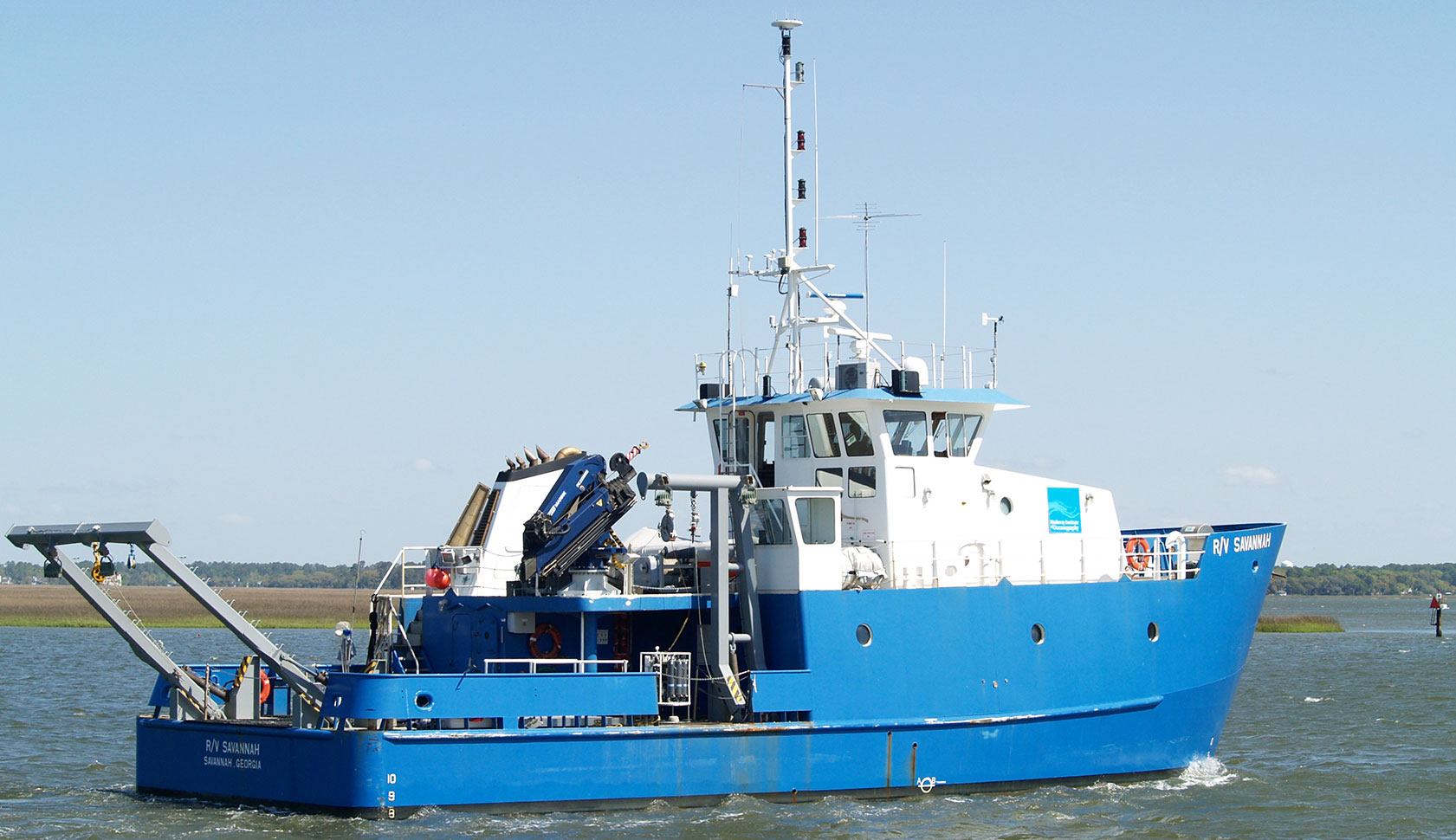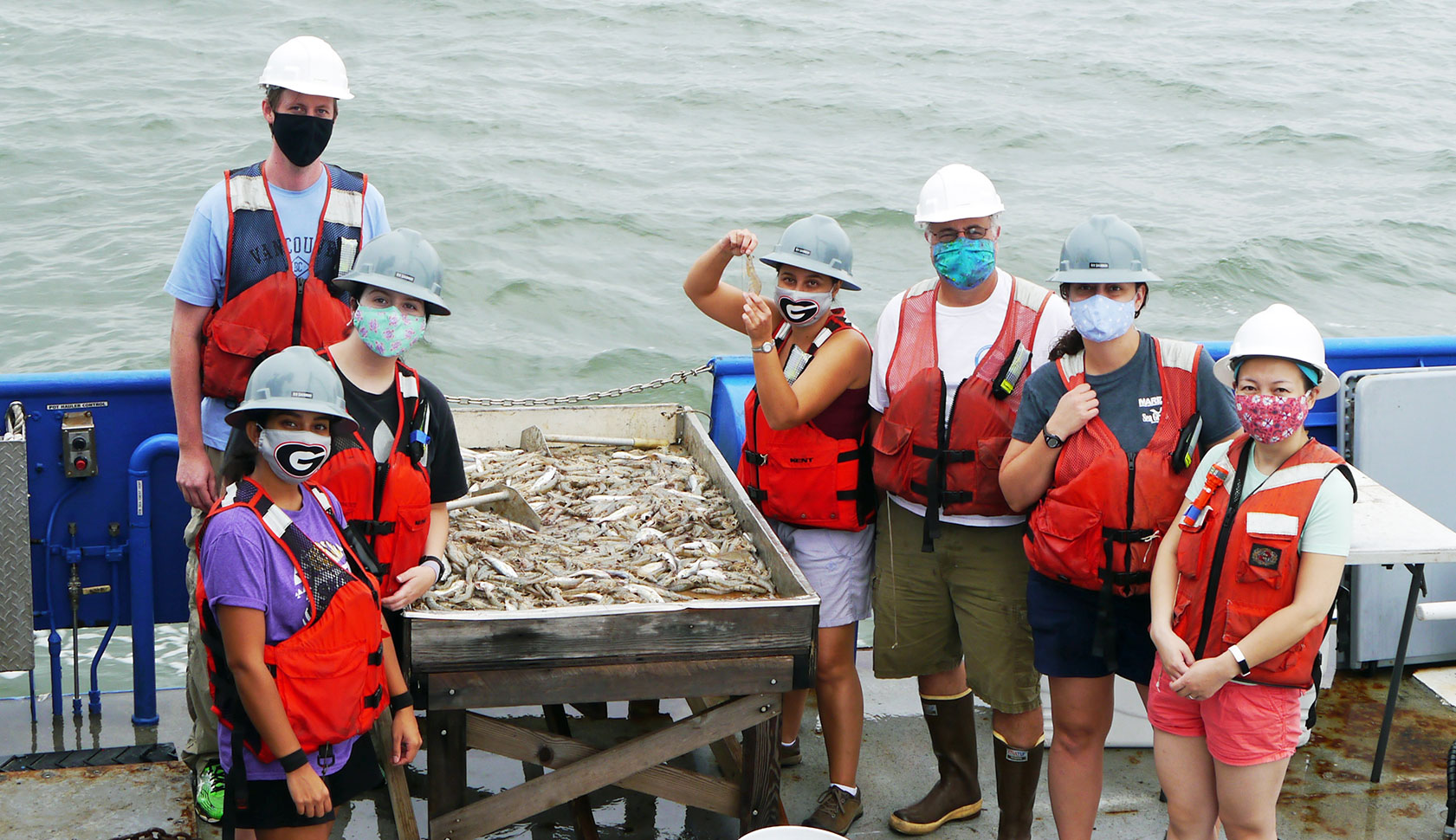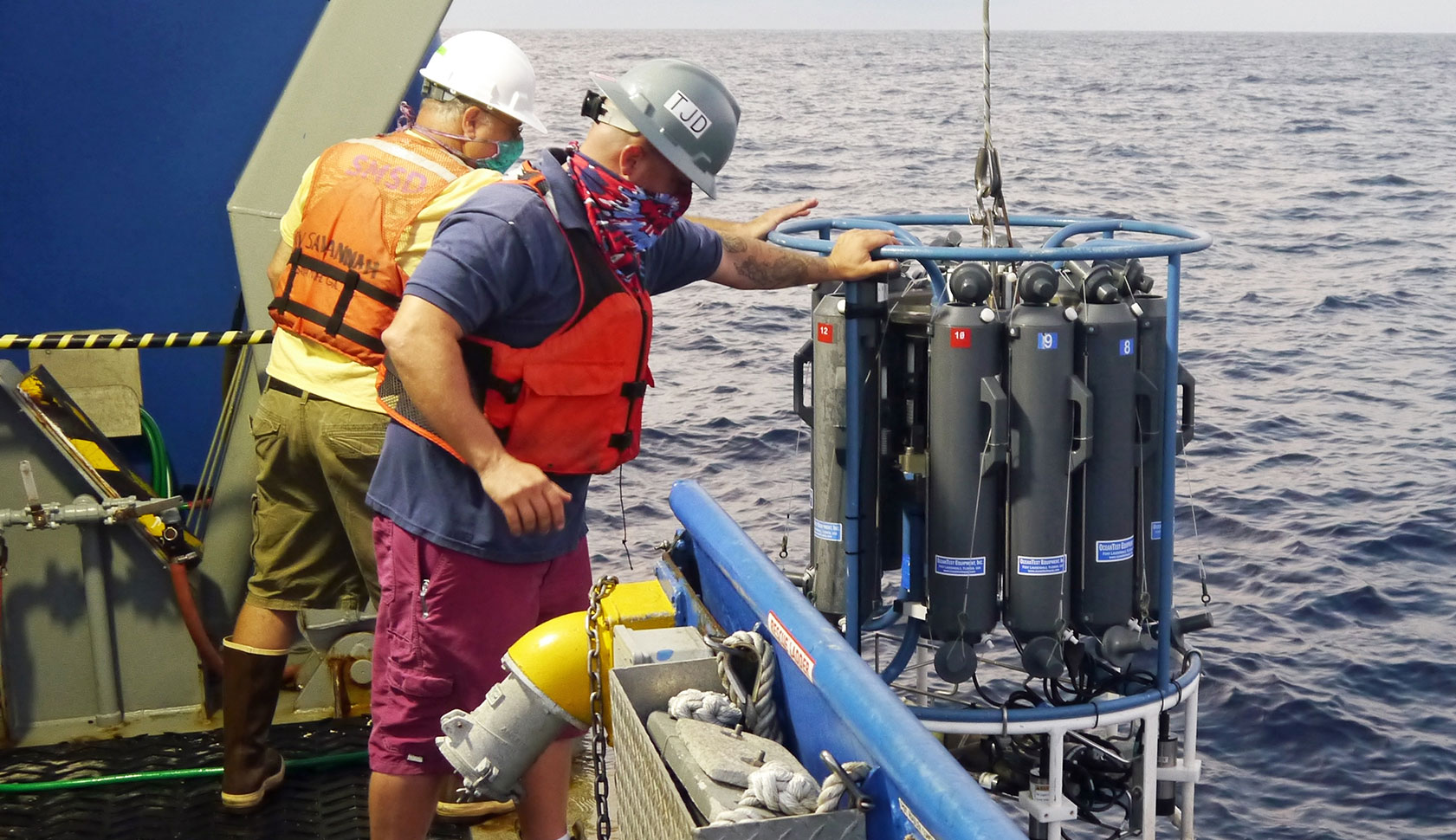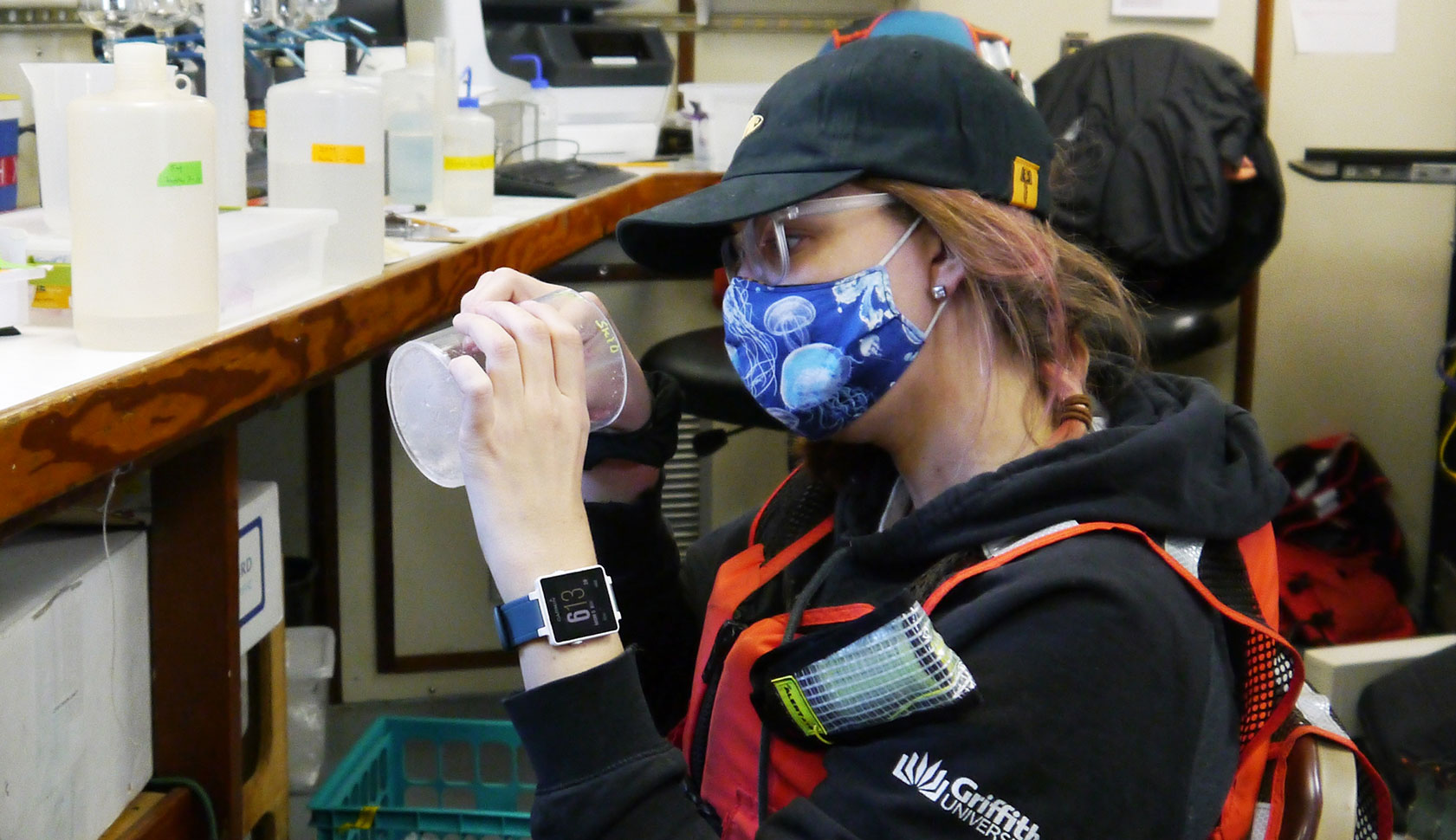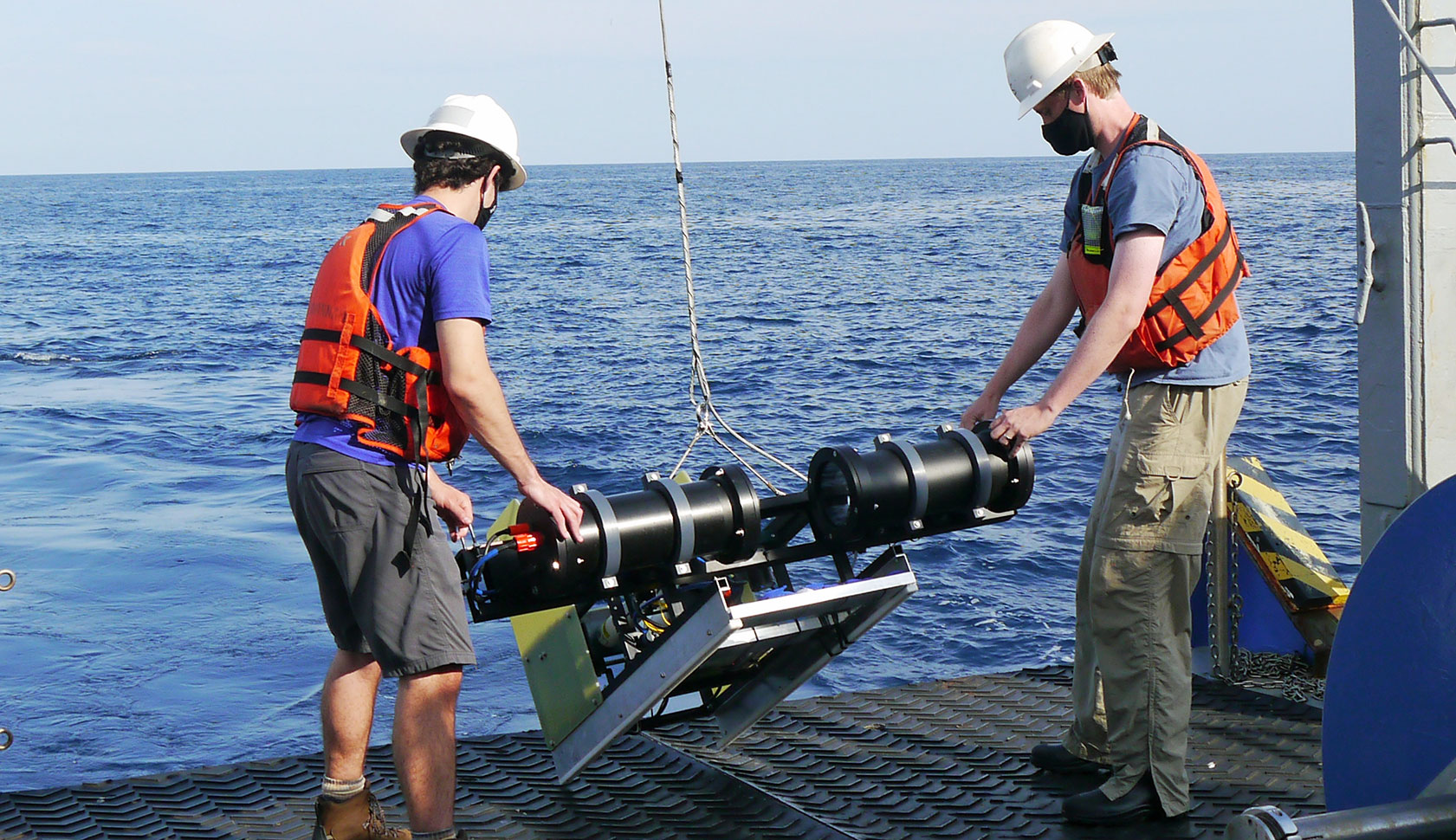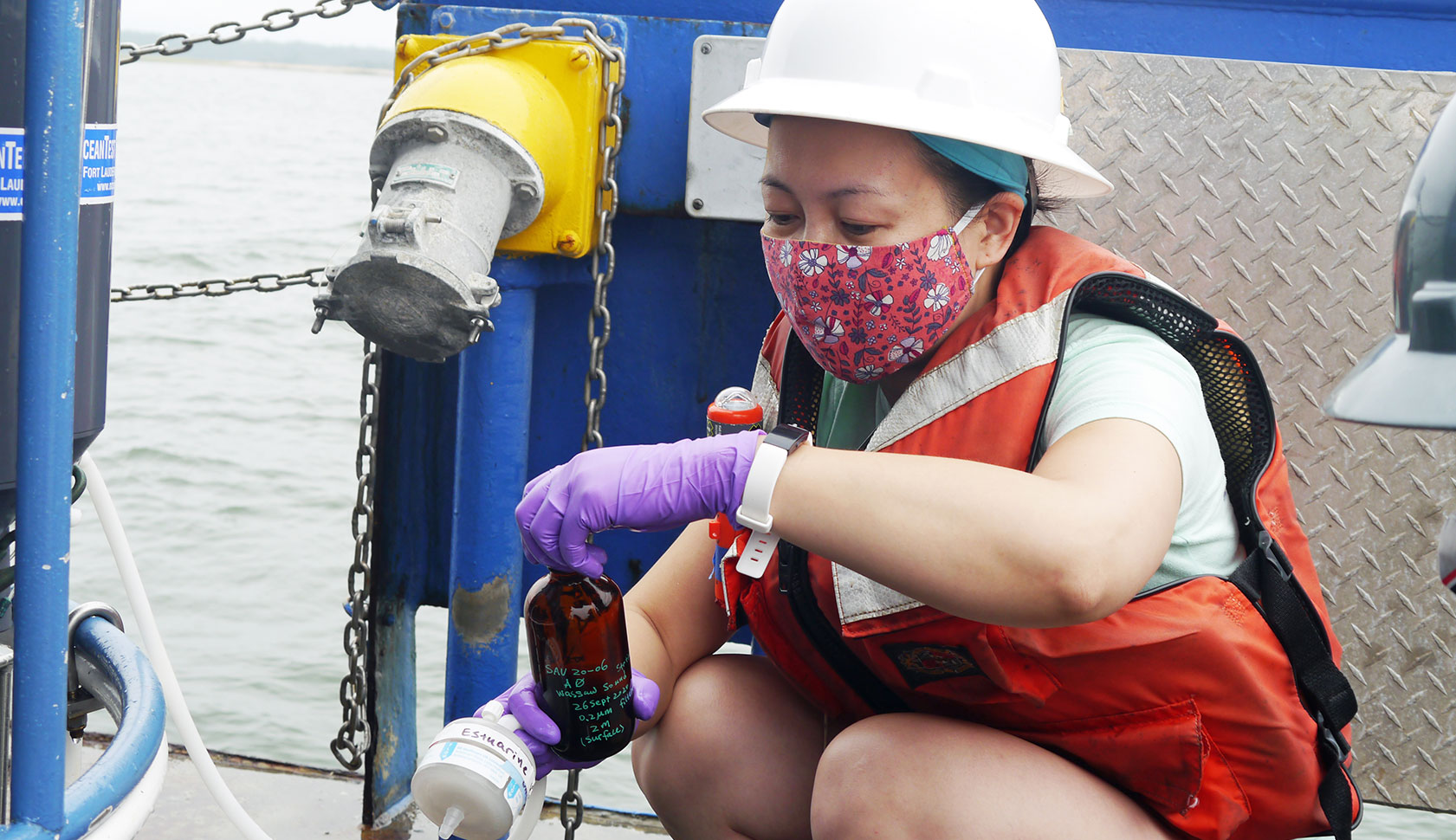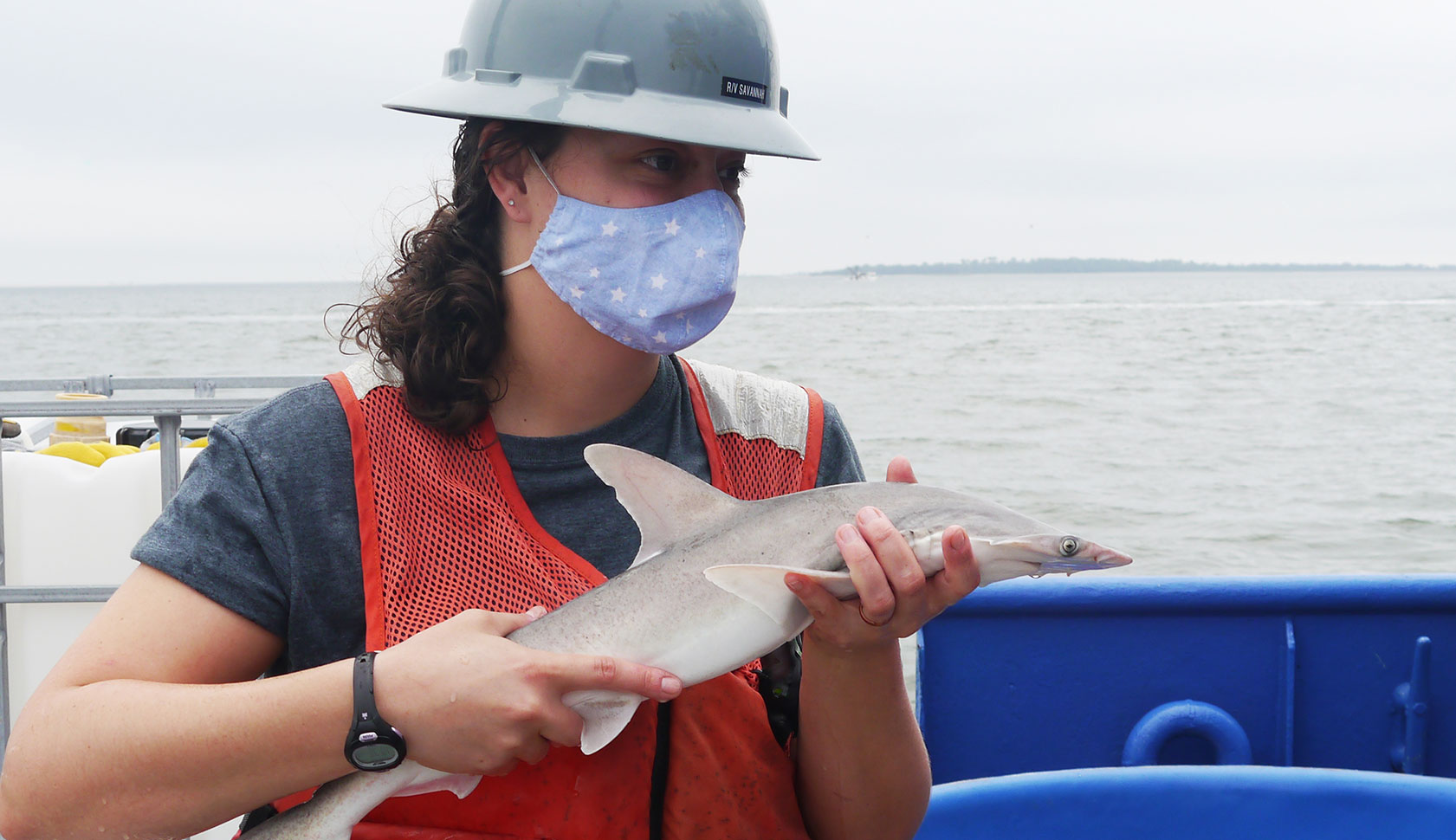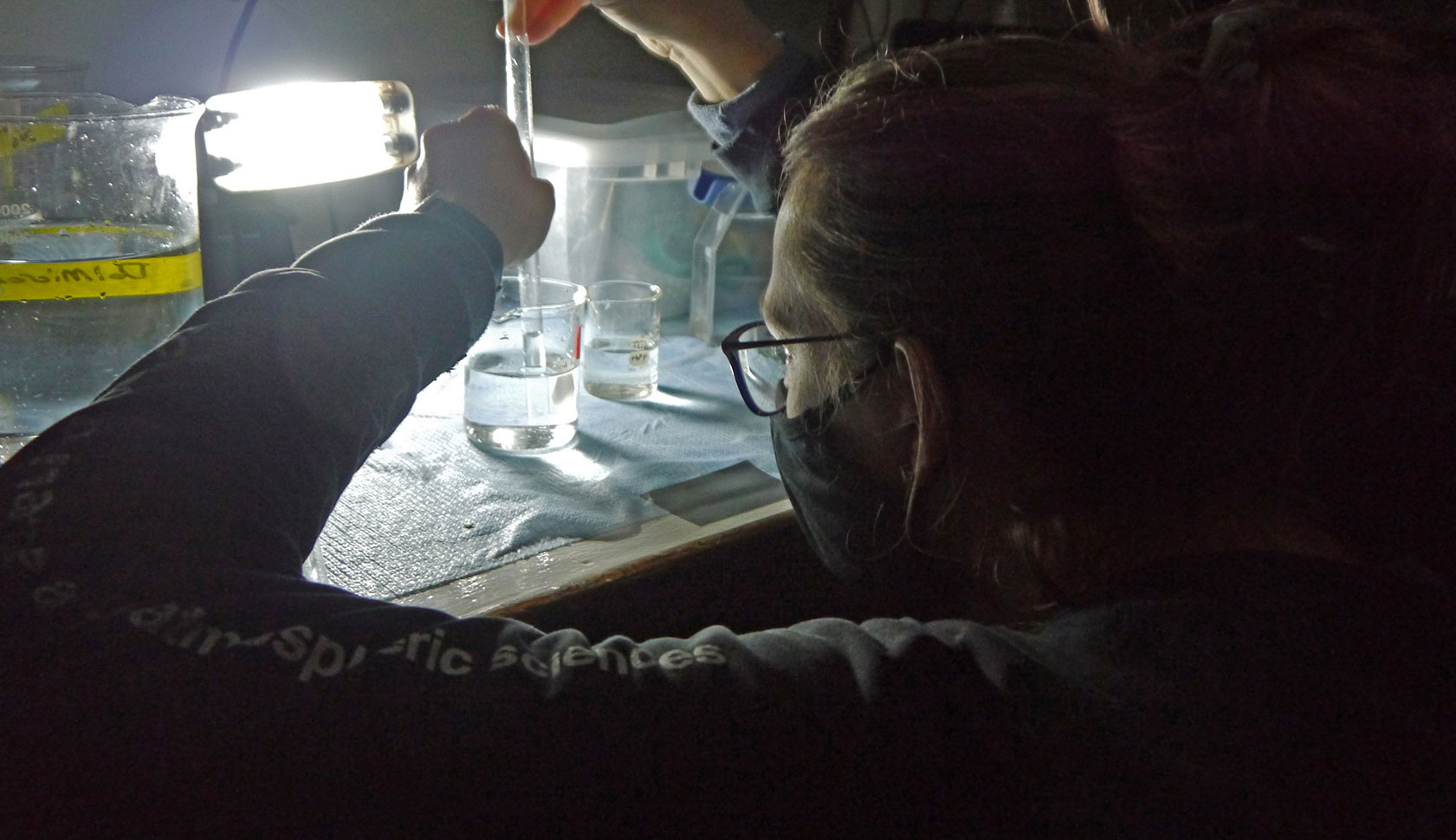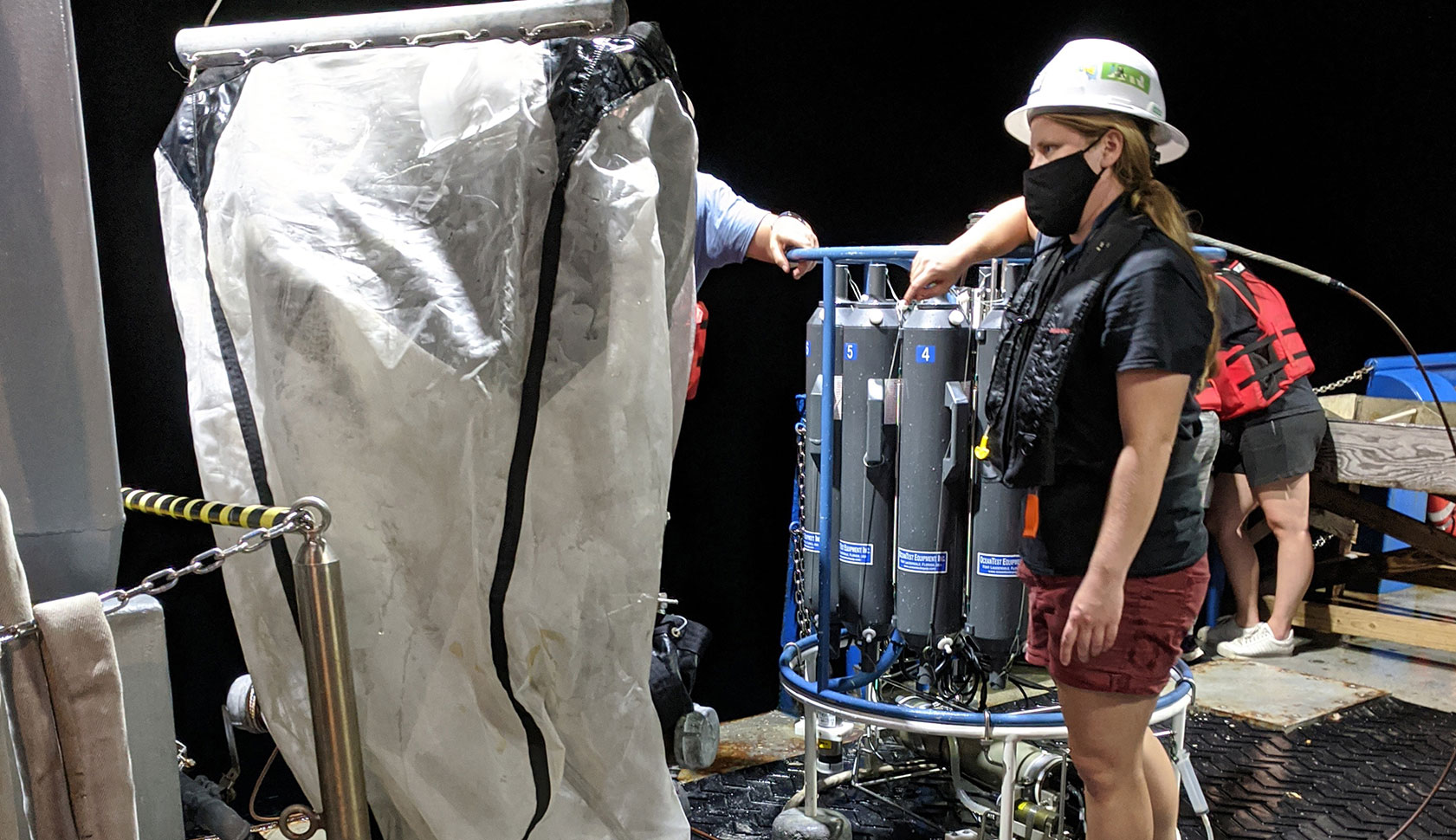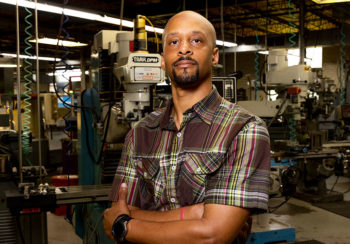The COVID-19 pandemic threw a gigantic monkey wrench into John Bichy’s plans for the Skidaway Institute of Oceanography’s Research Vessel Savannah.
As marine superintendent, Bichy is responsible for scheduling and managing the 92-foot research ship. The RV Savannah is used by Skidaway scientists, as well as researchers from around the world, to conduct marine research in a range from Chesapeake Bay to the western Gulf of Mexico. In mid-March 2020, the RV Savannah had just completed a lengthy maintenance overhaul and was ready to launch a heavy schedule of research cruises.
“We had a solid year planned, with 157 cruise days funded,” Bichy said.
The RV Savannah completed only 13 of those days before March 16, when all operations were shut down.
Bichy and his team, which included RV Savannah captain T.J. Dodge, began working with the University National Oceanography Laboratory system (UNOLS) to develop protocols to allow cruises to resume. UNOLS is a National Science Foundation unit that coordinates the nation’s academic research fleet, of which the RV Savannah is a part.
The result was an 11-page document that outlined strict measures, starting with a risk assessment before a science team ever arrives at the dock. The plan also established guidelines on COVID-19 testing, social distancing, mask wearing and disinfection.
While the safety protocols in place by June 2020, science cruises didn’t resume until late September. The RV Savannah ended up completing a total of 49 days of science cruises in calendar 2020. In addition, the crew participated in several “performance cruises,” essentially training runs to keep the crews sharp and the vessel operational.
Skidaway scientist Adam Greer has participated in several cruises under the COVID-19 protocols. The restrictions forced the scientists to pay more attention to the little things that normally they would have given no thought, he said, like wearing masks and being mindful of the number of people gathering in a particular part of the ship. However, he said the overall impact on his work was minimal.
“We were still able to carry out all operations, which mostly involved deploying and recovering instruments,” Greer said. “The testing requirements and general protocols while on the ship made everyone quite confident that we could keep the virus off the ship and still conduct our scientific operations.”
The COVID-19 restrictions, both from UNOLS and UGA Skidaway Institute, also affected the ship itself, as the crew found it difficult or even impossible to perform some essential routine maintenance. The crew was limited to only one or two people on board at any time, and they had to distance themselves from each other.
“This is a ship, and you have to work on it all the time,” Dodge said. “It’s a big piece of steel, sitting in salt water with electricity running through it. So, it needs constant attention.”
All the effort paid off—there were no cases of COVID-19 connected to any RV Savannah cruises. With 179 cruise days on the schedule for 2021, Bichy and Dodge are optimistic this year will be another safe and successful one for the RV Savannah.



